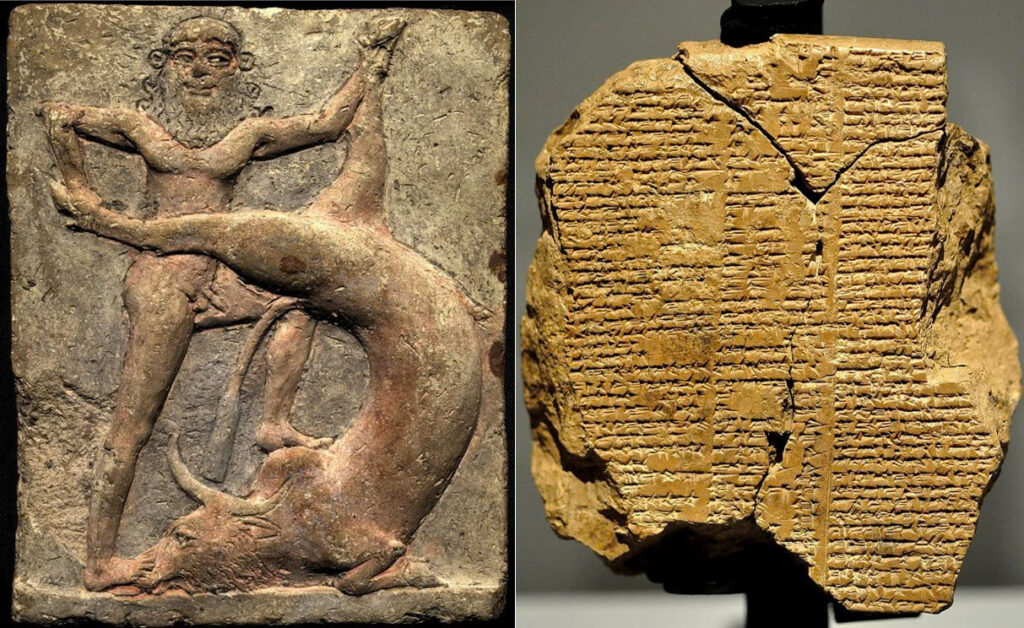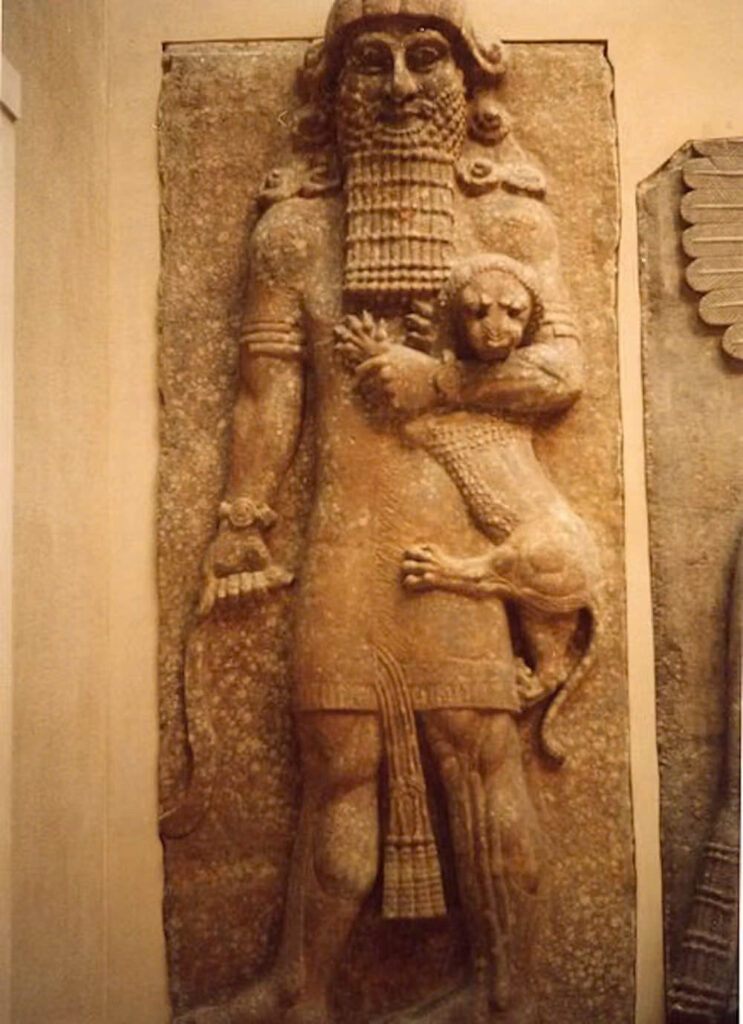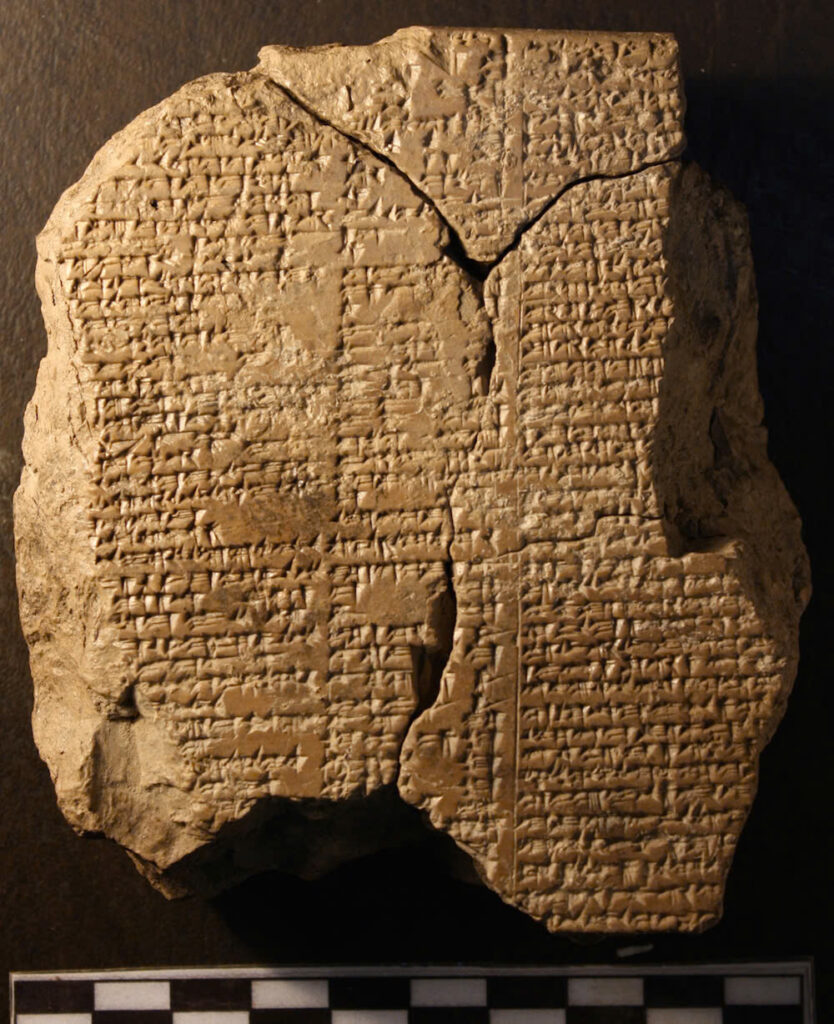Unveiling the World’s Oldest Known Literature
More than 4,000 years ago, in the heart of ancient Mesopotamia, a story took shape—one that would endure through the ages. Carved into clay tablets in cuneiform script, the Epic of Gilgamesh stands as one of humanity’s earliest literary treasures. Rediscovered in the mid-19th century, this legendary tale provides a rare glimpse into the values, beliefs, and aspirations of one of the world’s first great civilizations.

The Legend of Gilgamesh and Enkidu
The epic unfolds in Uruk, a magnificent city ruled by the mighty King Gilgamesh. Gifted with superhuman strength and divine lineage, Gilgamesh was a ruler of unparalleled power—yet his tyranny cast a shadow over his people. To curb his unchecked dominance, the gods created Enkidu, a wild man of extraordinary strength who lived in harmony with nature.

Destiny brought these two formidable beings into a fierce confrontation, but what began as rivalry soon blossomed into a deep and transformative friendship. Together, they embarked on thrilling adventures, facing mythical beasts and defying divine orders in a series of heroic exploits that would seal their place in legend.
A Quest for Immortality
Their triumphs, however, came at a cost. Enraged by their defiance, the gods decreed Enkidu’s death, sending Gilgamesh into profound grief. Confronted with the reality of mortality, the once-invincible king was consumed by an obsessive quest for eternal life.

His journey led him to Utnapishtim, the sole survivor of a great flood, whom the gods had granted immortality. Through countless trials, Gilgamesh sought the elusive secret to eternal life—only to realize that true immortality is not found in endless existence, but in the legacy one leaves behind.
Themes That Resonate Through the Ages
A Reflection of the Human Condition
The Epic of Gilgamesh explores universal themes that still resonate today: the fear of death, the power of friendship, the struggle between human ambition and divine will. This ancient narrative continues to captivate modern audiences, speaking to the enduring questions that define the human experience.
A Window into Mesopotamian Civilization
Beyond its rich storytelling, the epic offers invaluable insights into ancient Mesopotamian culture. It paints a vivid picture of daily life, the grandeur of its cities, and the deeply intertwined relationship between mortals and their gods.
A Lasting Legacy
The discovery of the Epic of Gilgamesh in the ruins of Nineveh was a groundbreaking moment in our understanding of ancient literature. Today, fragments of this timeless masterpiece are preserved in museums around the world, a testament to its enduring significance.

From its striking parallels with later religious and mythological texts to its influence on literature and art, the Epic of Gilgamesh remains a powerful bridge between the past and present. It reminds us that, despite the passage of millennia, the hopes, fears, and dreams of humanity remain profoundly unchanged.
As we reflect on this ancient masterpiece, we are reminded of the power of storytelling to transcend time. Through its tales of heroism, loss, and the search for meaning, the Epic of Gilgamesh continues to inspire, inviting us to ponder life’s greatest mysteries—just as our ancestors did thousands of years ago.

